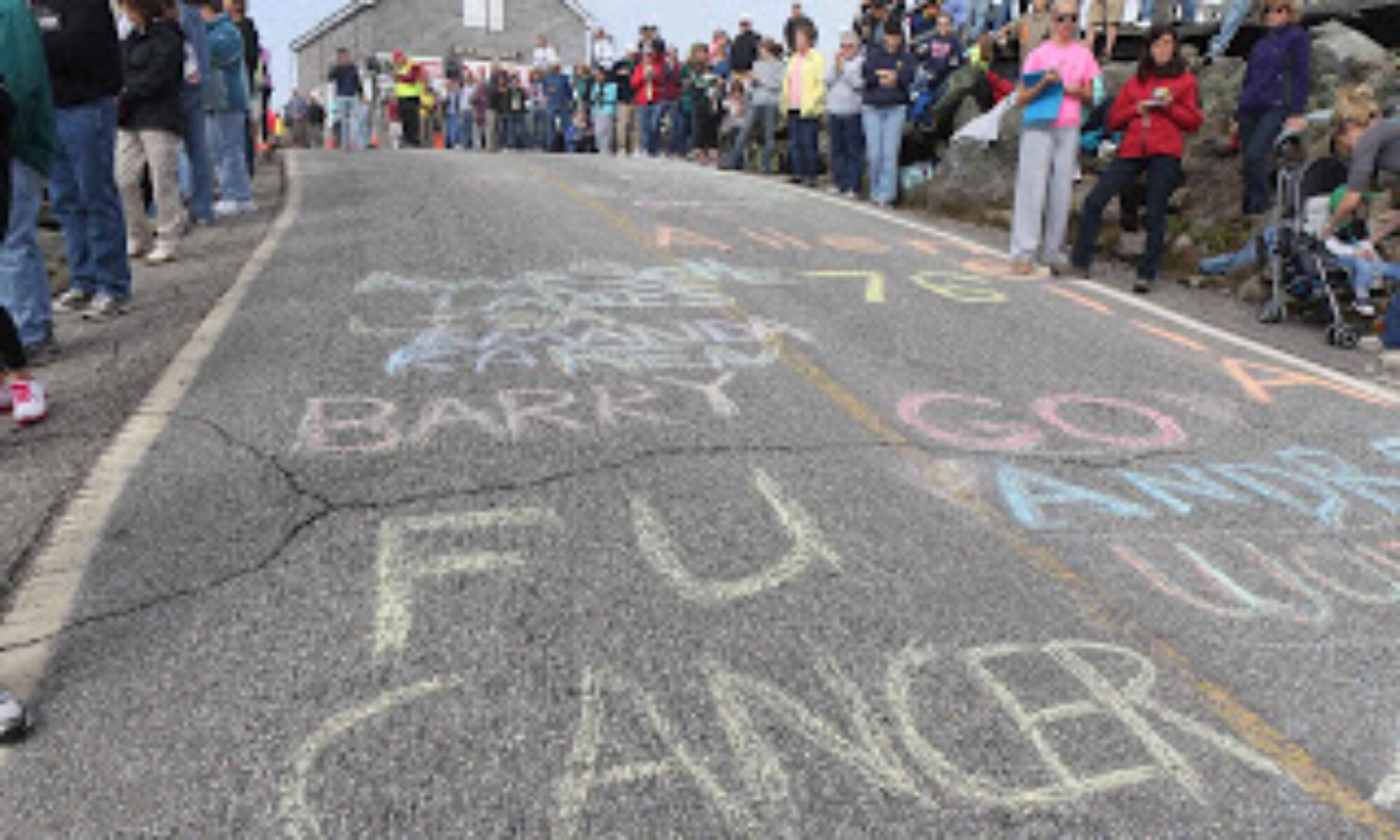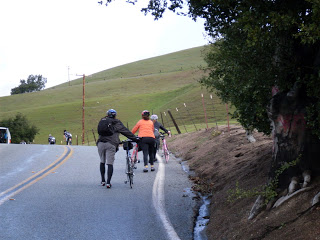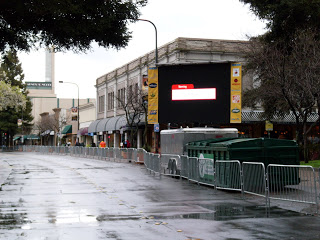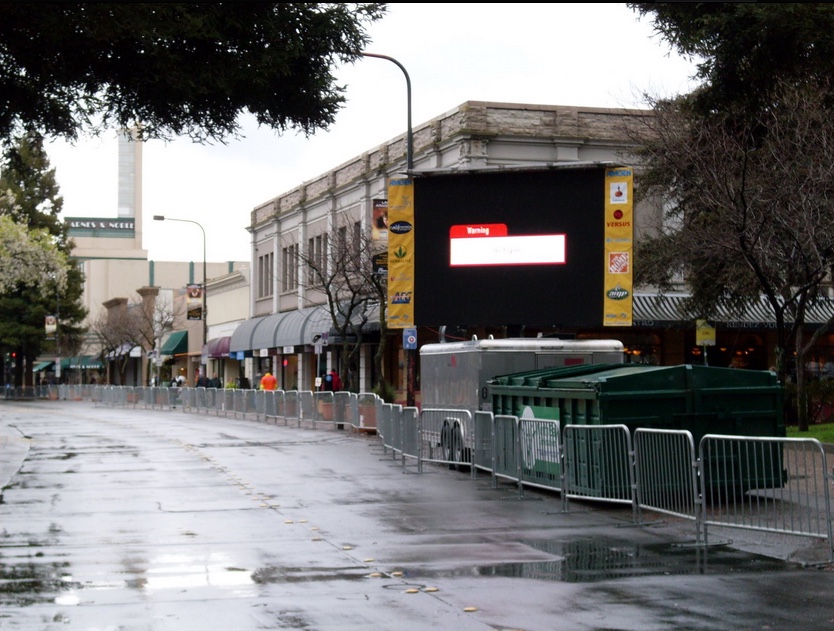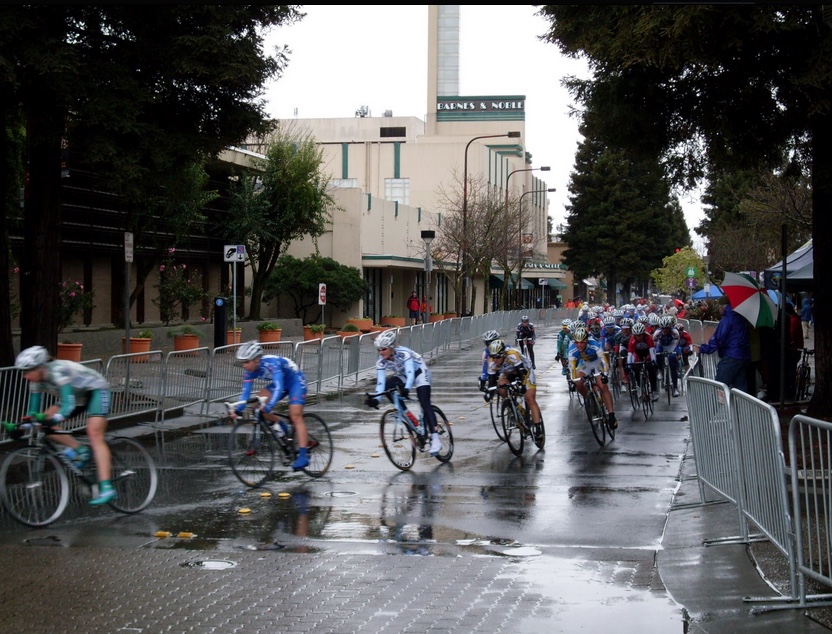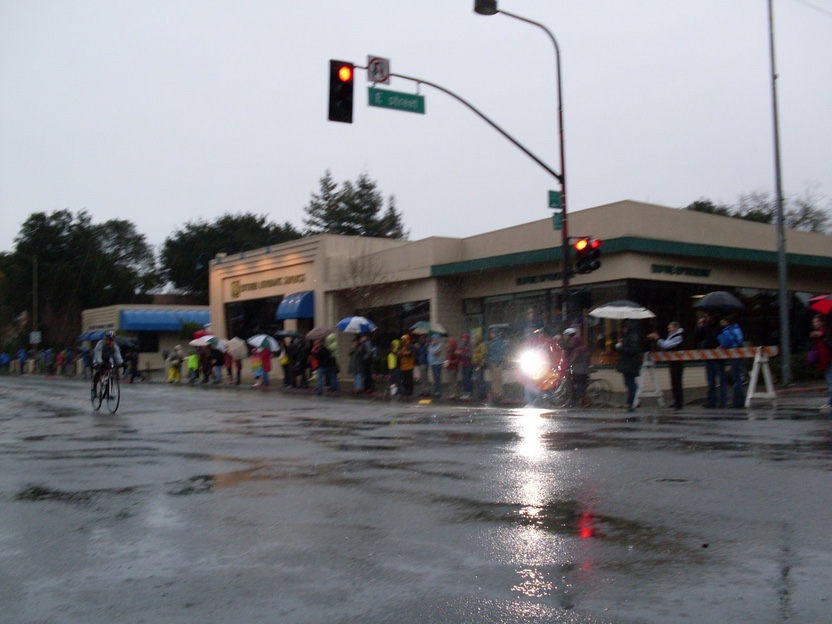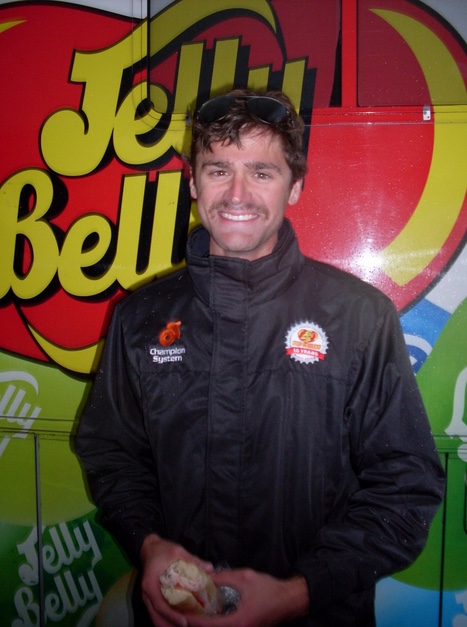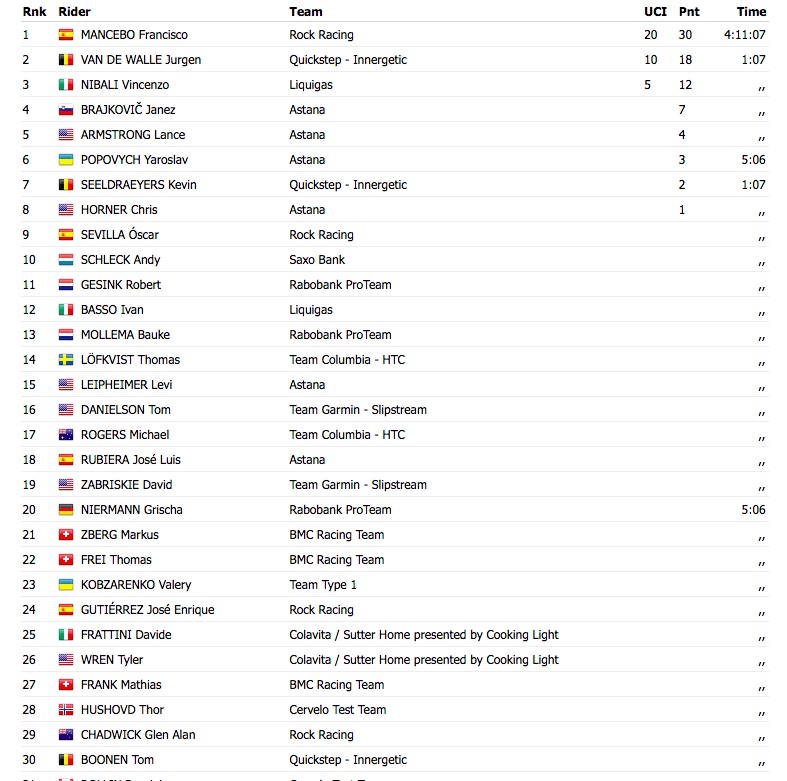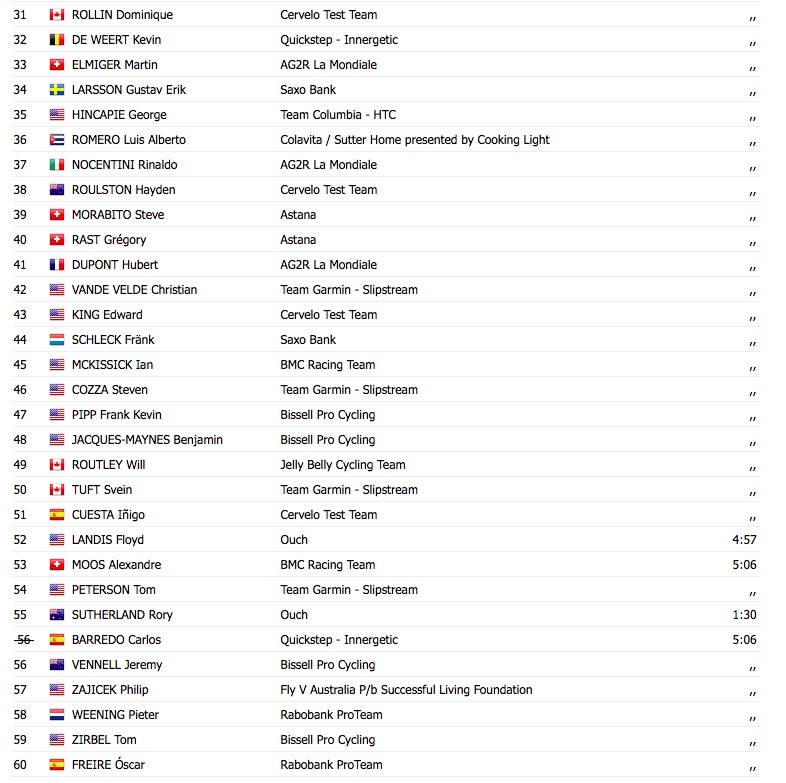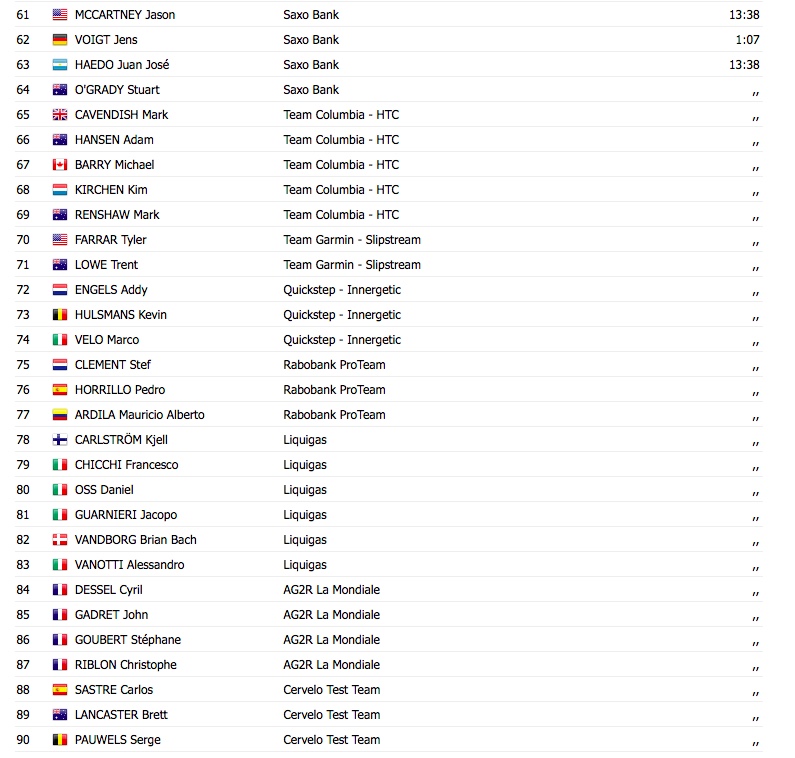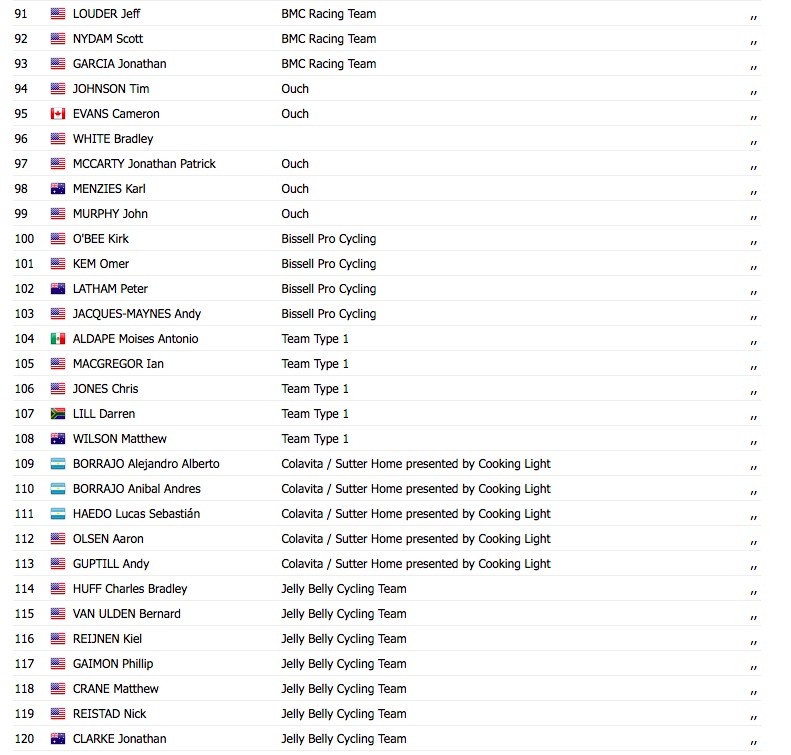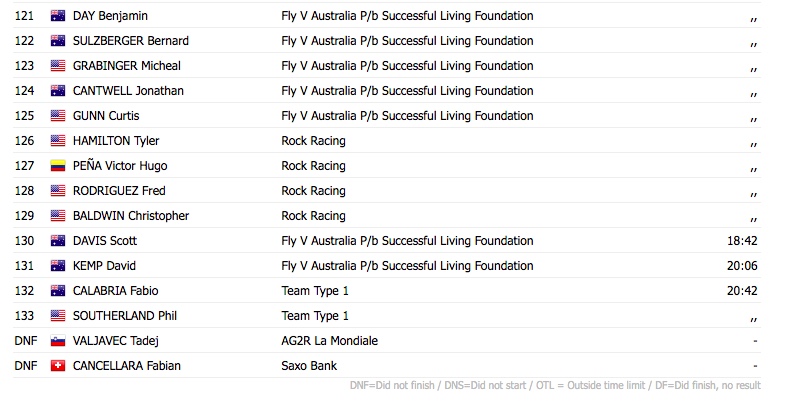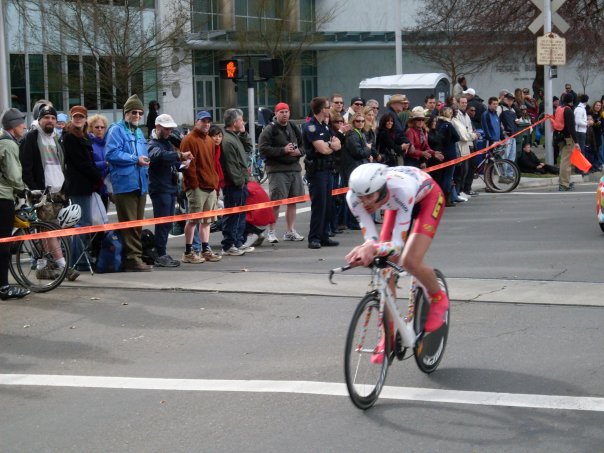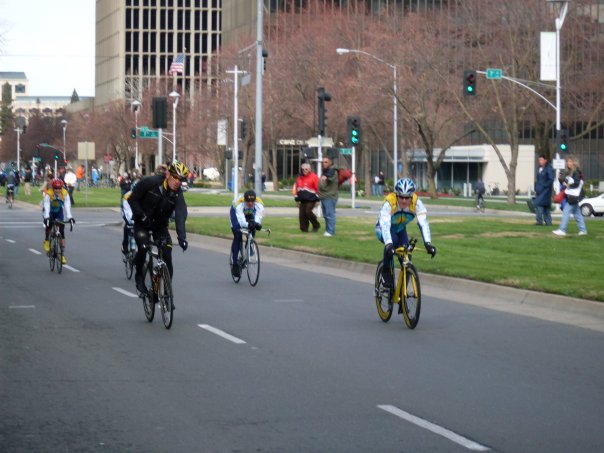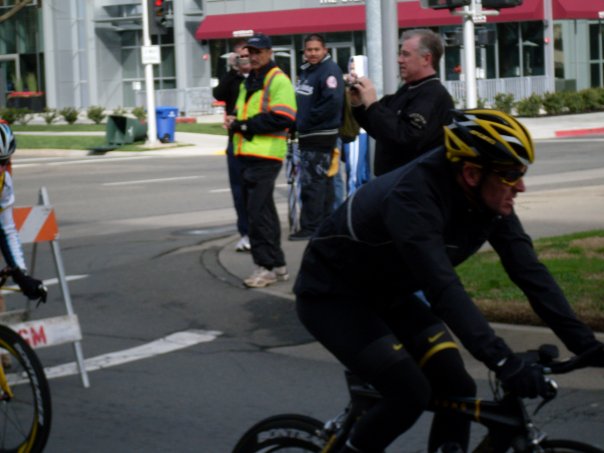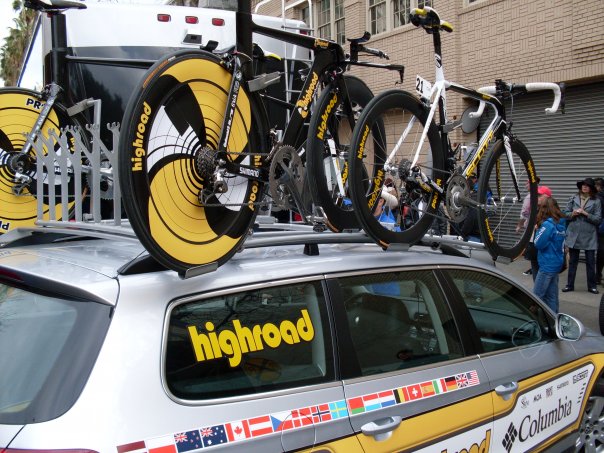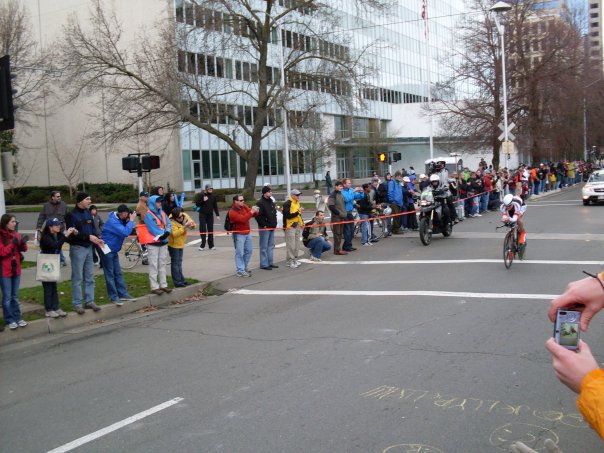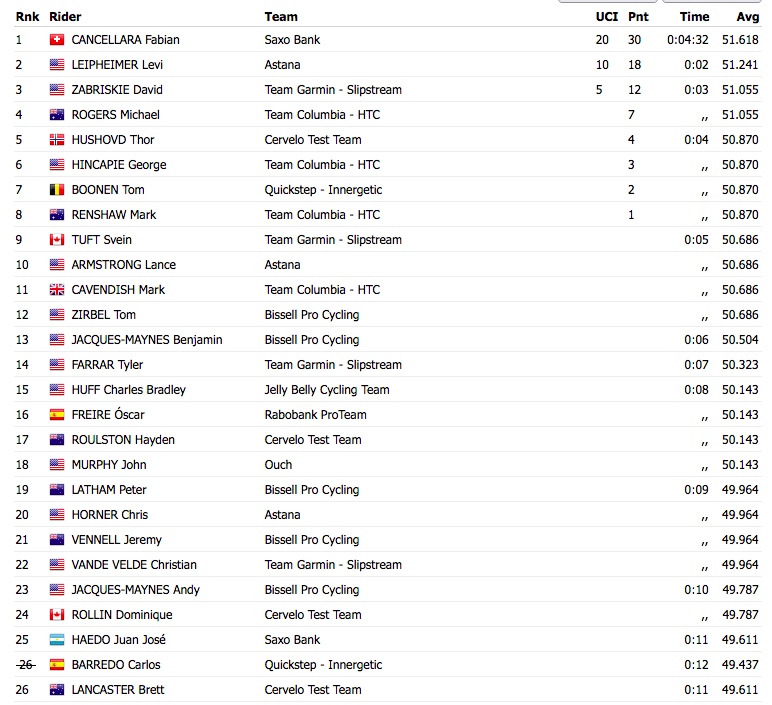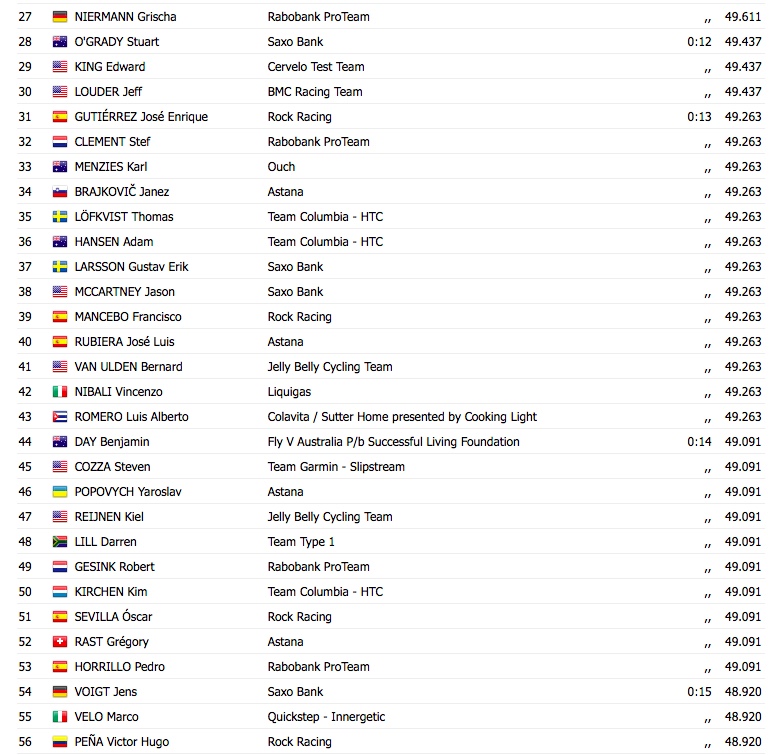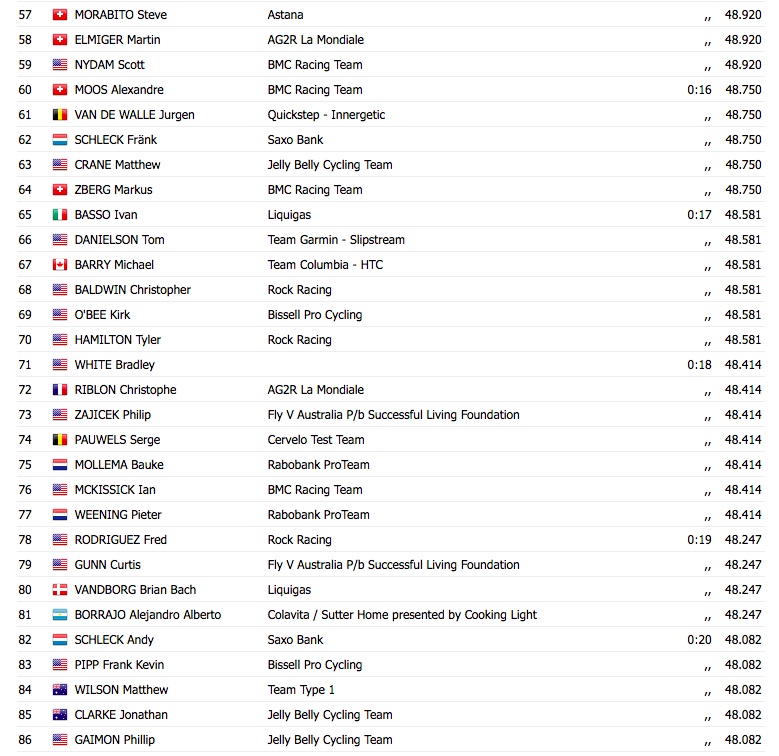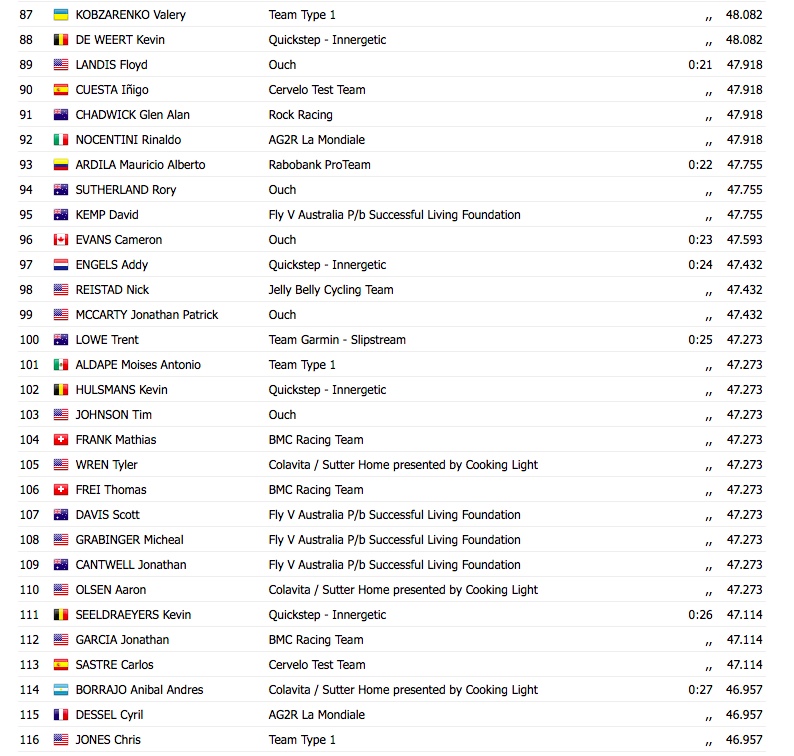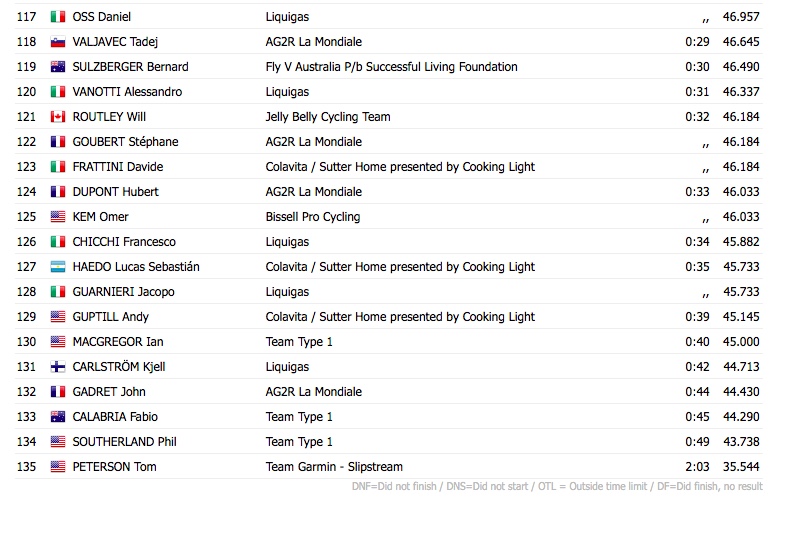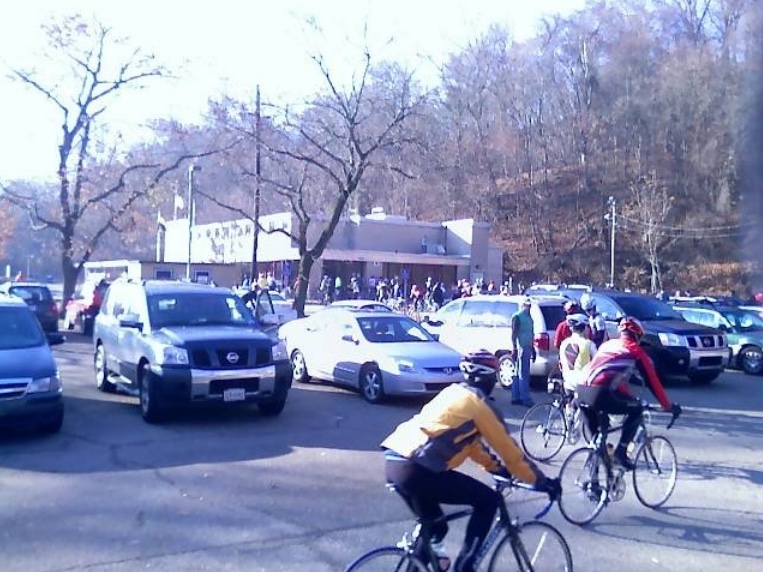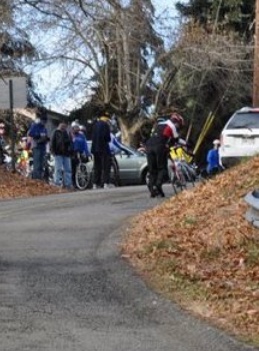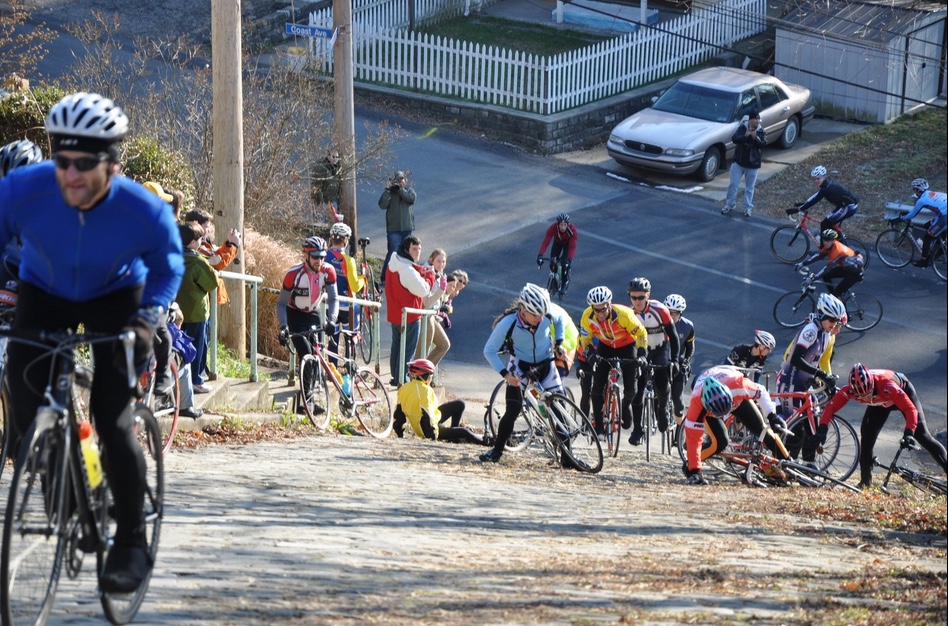SAN JOSE, CALIFORNIA
Rain came down, hard at times in San Jose. The boys have two mountain passes today on their way to Modesto. Have a safe trip!
My last day at the Amgen Tour. of California. I decided to spectate. I had a good time volunteering throughout the tour. In Sacramento, Santa Rosa, and especially Santa Cruz, I was the face of the Tour for many people and the face of cycling for these folks. The good people who came out in Sacramento and Santa Rosa were somewhat informed but still were inquisitive.
The folks who came out in Santa Cruz were mostly curious. My position in Santa Cruz was along a residential street and the only spectators, and there were a few, were locals who lived in the neighborhood. Most of them were retirees. I had to begin with Cycling 101. It was fun. My position on the course was necessary to keep people off a dangerous part of the course but it was a bad place to view the race.
After three days of being stuck in locations that were helpful to spectators but boring for me, I decided to head to the hill where I could simply spectate.
Sierra Road was the place. It immediately leaves the Silicon Valley and starts a climb. Sierra Road climbs from an elevation of 264 feet to 2041 feet over 3.6 miles. It has an average grade of 10%. Walking it I passed a number of walkers and a couple of cyclists.
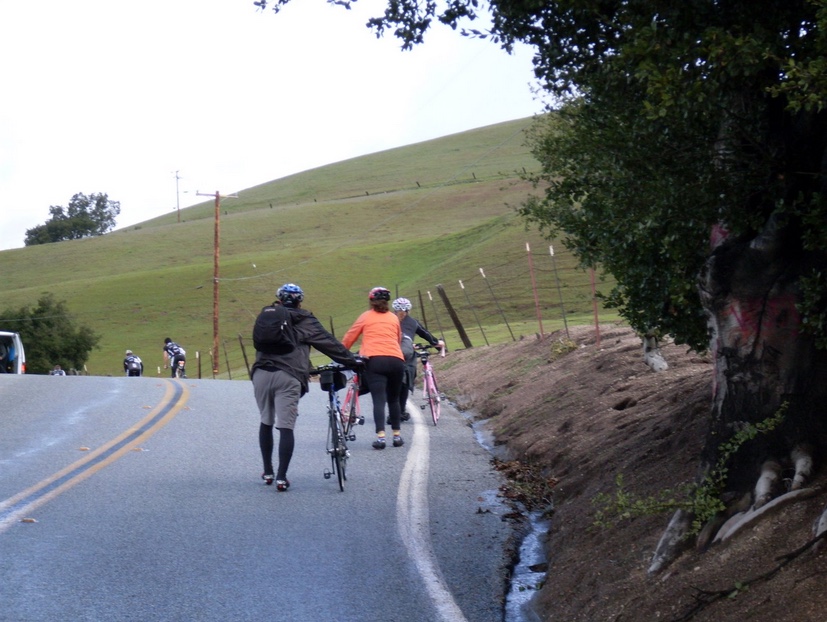
My thought while headed up the grade was “wow, this is really steep and this is really long.” Only after I returned did I look up the stats and discovered it’s half as long as Mount Washington, doesn’t reach 6,000 feet, isn’t nearly as steep (12% is, after all, 20% steeper than 10%), and actually has some flat and even downhill sections where the body can recover.*
Some cyclists walked. Others kept plodding along. A few cyclists came by with a pretty good pace and then a Liquigas rider came flying by. He left them in the dust (well, road mist). I know some people buy kits of their favorite teams but who owns the complete Liquigas kit other than a true rider? I figured Team Liquigas brought an extra rider or two and they are riding ahead of the peloton for their fitness. I don’t know who that was.
Once I reached the top the temperature dropped, the winds picked up, and the rain started. And it was cold. My estimate was it was in the mid 30s with a wind chill in the mid 20s. I had an umbrella and shared it with another guy.
Unlike Sacramento, Santa Rosa, and Santa Cruz, there weren’t any curious onlookers at the summit. Everyone there was a cyclist or cycling fan. I figured the people who were erecting signs for Steven Cozza (Garmin-Slipstream) were his parents. At the top were the parents of Scott Nydam (BMC) and his fiance. She was marking the pavement with his name in chalk although it was a losing battle against the rain. It’s neat being at the top and chatting with the families of the riders. Try that in France!
There were probably 100 of us at the top and, who knows, a few hundred more at various points on the way up. I had one time to get it right and decided to make my last view of the Tour from the King of the Mountains summit. If I had a second time I would pick a location about halfway up where I could see the entire course without my view blocked by the masses. But I don’t regret being at the summit.
We were cold. People were jumping up and down to keep warm and we cheered everyone who came across the summit. Mountain bike. Yeah! Walker. Yeah! Policeman. Yeah! Cheering kept us warm.
One cyclist recognized me from Sunday’s stage. “You were in Santa Rosa.” He thanked me for talking with him there then asked if he rode down 100 yards and came back up if he thought we would cheer for him. I assured him we would. The cyclist goes down 100 yards, turns around, and comes back. Yeahhh!
The police came through followed by a group of four riders followed closely by the peloton. Francisco Mancebo (Rock Racing) was first. Although we were only 8.1 miles from the start, and many riders were grouped, it was surprising to see some real stragglers. I had already started down when another rider came up. I first assumed it was a recreational rider — he was behind the team cars — but it may have been Alejandro Alberto Borrajo (Colavita-Sutter Home). He abandoned today.
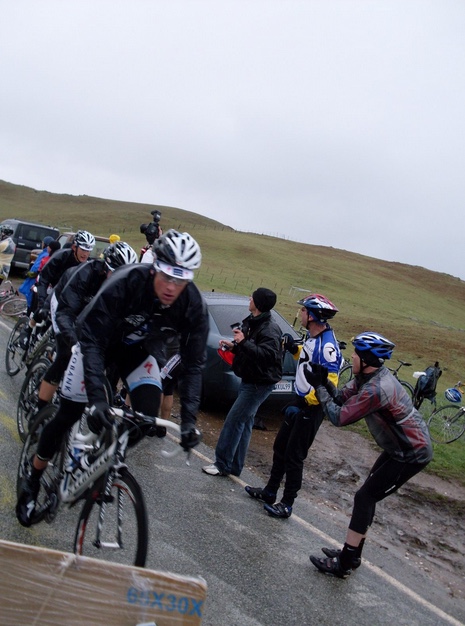
The rain picked up and was really coming down. They were very big rain drops, almost hail. I was wet and cold and wasn’t looking forward to my trip down. My pants were weighted down with a camera, cell phone, wallet, and car keys. I could not run but run I did. I started slowly. I didn’t have running shoes — turf shoes that I probably ruined all the little nubbies. My gait was a half stride, because it was downhill and because I couldn’t really run or else my pants would fall down.
I carried the umbrella and fought the wind. It only turned inside out once. I made it down passing lots of people along the way and made it back to the car. Even with an umbrella, I was soaked. Again. But no longer cold. At the lower level, it was near 50° and with wearing two riding jackets I was sweating.
I opened the car, peeled off some of the wet clothes, but really had to go to the bathroom. I found an empty Diet Pepsi bottle and created my first “urine bottle.” The urgency was such that I could not wait.
I then reflected on four days of fun. The Amgen Tour of California is a great event. It will become a major American sport just like the Tour de France is (when soccer becomes as popular as American football) so you better plan to see it while you can still mingle with the parents and girlfriends of the riders, and even meet them at their trailer.
I would like to come back– maybe volunteer at one stage, but not four. Spectating is much more fun. Now if they offered me a position as traveling course marshal — we’ll talk. Especially if Lance comes back next year.
*Actually, with flat and downhill sections in the calculation, perhaps the actual climbing sections may have been 12% or so.
EDIT/EPILOGUE – This was my first urine bottle – ever. I had a headache and lots of body aches on this trip. With 20/20 hindsight, I likely had e.Coli at this time. A few weeks later, I had the same symptoms while officiating at the Jefferson Cup in Richmond, Va. Headaches and fevers continued until May when Dr. Semerjean at George Washington University Hospital finally diagnosed the e.Coli and was able to treat it. He also diagnosed cancer.
But it is likely that on this day, my cancer journey began.
